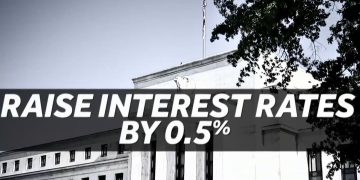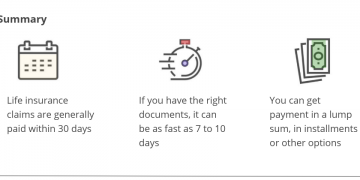Putting resources into land has a lot of advantages. A consistent progression of additional pay, moderately low unpredictability and the appreciation in the worth of properties are factors that make real estate a wise venture.
Be that as it may, there are additionally a few disadvantages. Land can be an unfortunate venture in the event that purchasers come up short on time, insight, or money to get everything rolling. Besides, financial backers can’t trade property as effectively as other monetary resources, like stocks.
What Is Real Estate Investing?
Land effective financial planning is the point at which a financial backer buys a property with the purpose of making a return. Land financial backers can take either a detached or dynamic methodology.
Latent land financial planning is the point at which a financial backer decides to be a property manager, involving the property as a rental unit. Dynamic land financial planning, then again, alludes to “home-flipping” where the financial backer expects to trade rapidly for an increase in times of high monetary interest.
In the two cases, it very well may be productive. The two different ways of bringing in cash from land are through:
- Pay from tenant contracts
- Return on contributed capital through cost appreciation
Normal real estate venture exchanges are for private properties, business properties, and townhouses. Affluent land financial backers will some of the time buy a few units found together at the same time.
Why Is Real Estate Is Good Investment?
The land is a wise venture because of strong repeating gets back from occupants along with the appreciation of the worth of the property.
Thusly, financial backers who don’t utilize support will continuously hold responsibility for the property, which can be sold later. Furthermore, it’s one of the most steady resource classes and an incredible store of riches.
Why Is Real Estate Not a Good Investment?
Land financial planning is definitely not a wise venture for somebody who necessities open admittance to capital. real estate is profoundly illiquid — meaning it can’t be switched over completely to cash without any problem. The purposes for this include:
- The intricacy of trading arrangements
- Capacity to find somebody ready to make a first-class buy
Unpracticed land financial backers who don’t comprehend the intricate details of the market might confront further battles. Without earlier information, a financial backer could overpay or buy a property in an unfortunate area. Also, continuous capital will be expected for property support, redesigns, and upkeep.
This can prompt challenges in finding inhabitants or the powerlessness to exchange a property, which could avoid financial backers attempting to dig their direction with regards to an opening. It can turn out to be progressively troublesome when economies run into some bad luck, just like the case in the 2008 monetary emergency.
How Do You Invest in Real Estate?
New financial backers can put straightforwardly in properties themselves, or they can decide to contribute through land venture trusts. Here is a portion of the choices.
Private Investment Properties
Private land speculations target condos and lofts, which are either multi-family or single-family properties. Private land ventures are ideal for more modest financial backers or those building a different land portfolio for automated revenue over the long run.
Business Investment Properties
Business land is comprised of stockrooms, stores, lodgings, and places of business. Organizations will lease the space for each square-foot premise. Business land speculations are appropriate for high-total assets people and venture assets because of the enormous continuous expenses and capital required.
Land Investment Trusts (REITs)
REITs are a sort of venture reserve that put most of their resources into real estate. Possessing a public REIT is like claiming portions of a singular organization on the securities exchange — it very well may be traded regularly. Be that as it may, there are non-public REITS, which are not as fluid.
Four center advantages of public REITs are:
- Low passage costs
- Broadening
- High liquidity
- Profits
REITs by and large spend significant time in a specific area, for example, media communications, server farms, or shopping centers. They are an extraordinary way for retail financial backers to get openness to the housing market.
The amount Can You Earn From Real Estate Investing?
The middle land venture return is 8.6% per annum. Notwithstanding, returns will change in light of the sort of venture. Here are the authentic typical gets back from various land speculations:
- Private properties: 10.6%
- Business properties: 9.5%
- REITs: 11.8%
Is Real Estate Better Than Stocks?
While considering getting into the housing market, financial backers ought to weigh up different choices that might be more reasonable. Here is an examination of land and stocks in specific classifications.
Unpredictability
Real estate is undeniably more steady than financial exchange. This is a direct result of exchanging recurrence and substance. Stock possession isn’t substantial, and offers can be exchanged constantly because of high liquidity. real estate is a hard resource that by and large conveys a greater cost tag, making it more challenging to execute.
Stocks can likewise go through critical cost swings in light of an organization’s profit report or other continuous declarations that give progressing data about business execution. Then again, real estate will in general respond to monetary news at a more slow speed.
Taxes
Albeit the passage costs are higher for land, it additionally gives charge allowances where relevant. Notwithstanding, the local charge should likewise be paid — with rates fluctuating by state. This can be a game changer in what makes land pretty much alluring to purchasers.
Investment property charge derivations and devaluation allowances can be made before gross pay is determined. Stocks held for longer periods have their own duty benefits, yet momentary exchanging will bring about higher capital increase rates.
Expansion
Long haul yearly financial exchange returns are normally generally 9%. Be that as it may, whenever expansion is represented, returns are recorded to be basically as low as 6.8%. Most land financial backers accomplish an annualized return of 8.6%, however, the property is considered to show strength against expansion in correlation.
This is on the grounds that rental yields will generally change upwards as land, work and material costs rise. House costs have likewise kept up or even beaten expansion over an extensive stretch, as per Colin Lizieri, a teacher of land money and a financial specialist from the University of Cambridge, as detailed by Bloomberg.
Is Real Estate a Good Investment Right Now?
Putting resources into land right presently has contended the two different ways. A few specialists accept a place of refuge resource can safeguard against expansion, however others in the business imagine that increasing home loan rates and the chance of a downturn hose the transient standpoint.
Fannie Mae’s Home Purchase Sentiment Index as of late dipped under 2011 levels, recommending a cynical view from a shopper stance with respect to purchasing homes at the present time.











































































